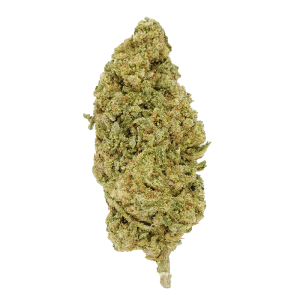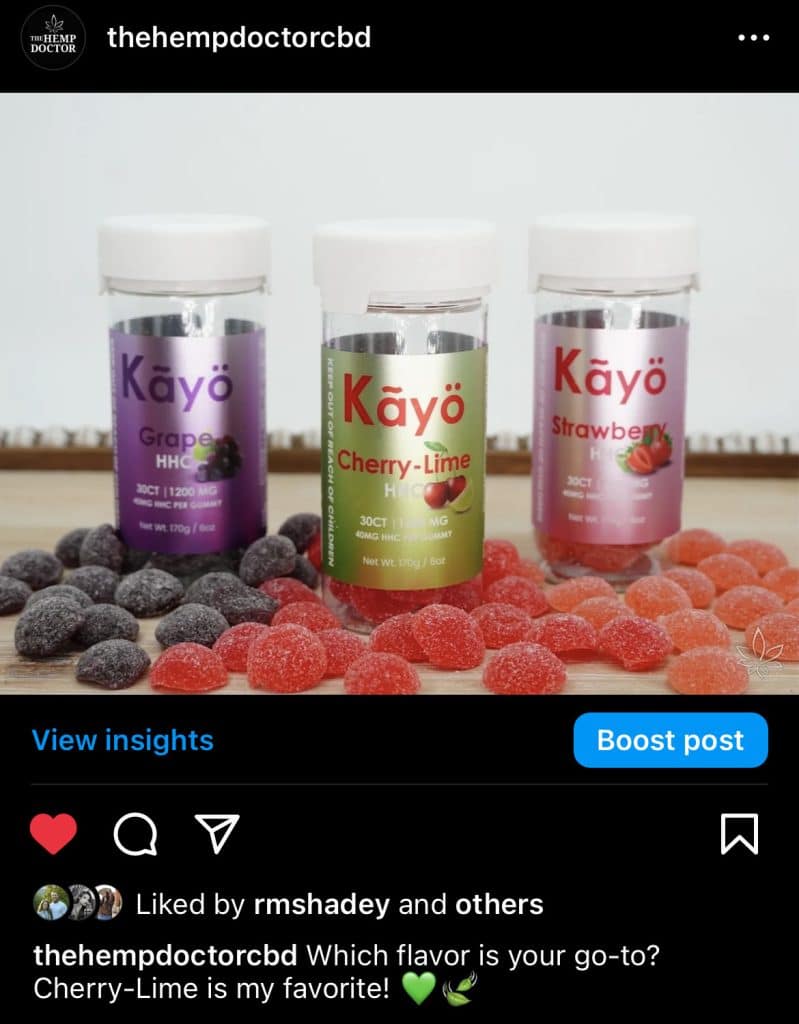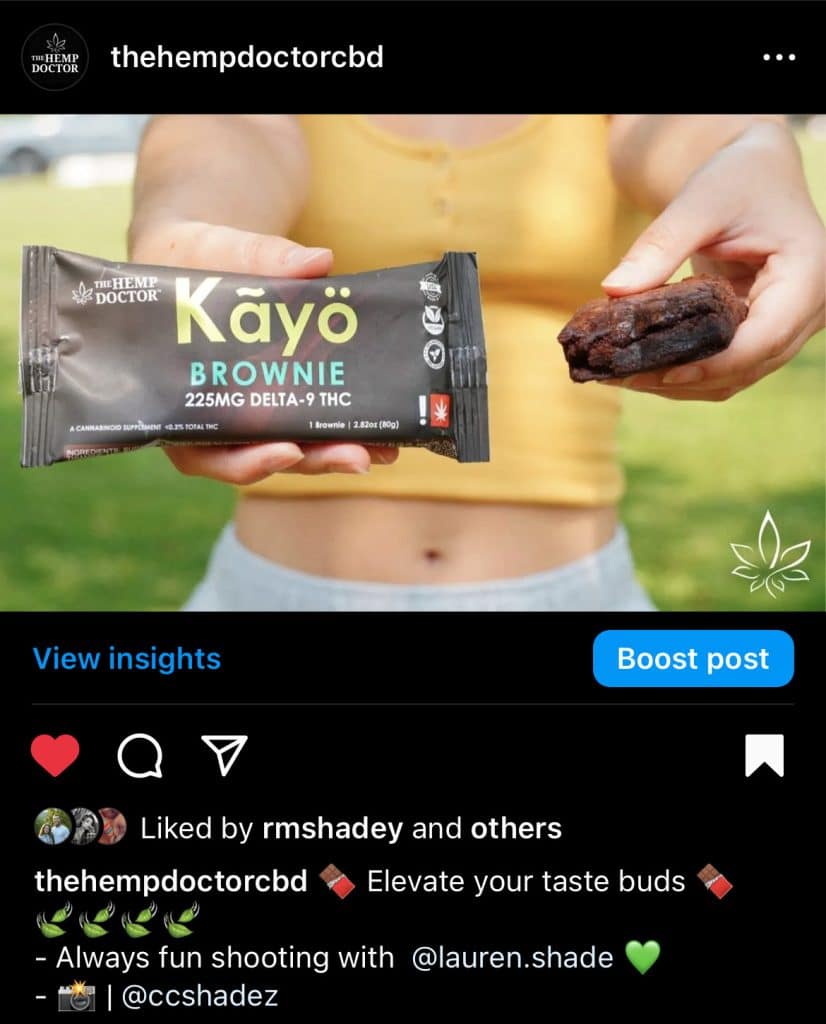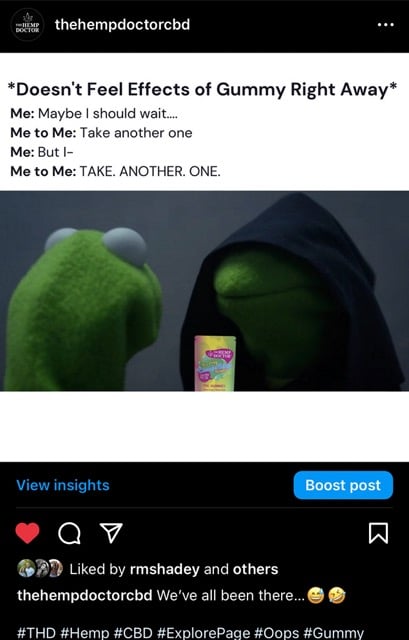Tetrahydrocannabinolic Acid: What Is THCA?
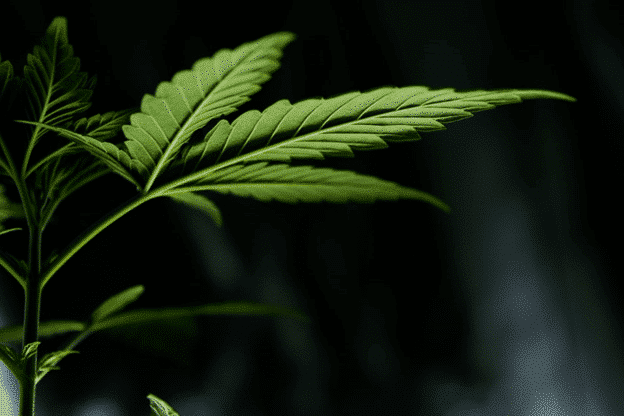
While there are more than 100 known cannabinoids in the cannabis plant, most of us are only familiar with two: THC and CBD. However, those eager to learn more about cannabis have also been curious about one of the lesser-known cannabinoids: THCA.
What is THCA is one of the most common questions that comes up among marijuana enthusiasts. THCA might not yet be a familiar term, but that does not make it any less important regarding how we end up with THC. If you’ve been asking, ‘what is THCA? or ‘is THCA a psychoactive?’ You can learn what it is, what it does, and how it compares to other cannabinoids below.
What Is THCA?
We know that THC is tetrahydrocannabinol, but you might not be aware that THCA acid (THCA) is similar. It is THCA, meaning tetrahydrocannabinolic acid, is the precursor to THC. As cannabis plants grow, they make cannabinoids as carboxylic acids. These undergo a decarboxylation process and convert into non-acidic compounds. THCA goes through this process, as do other cannabinoids.
This process is how we come to have THC. THCA is available in abundance in fresh cannabis plants but is unstable once a plant has been exposed to light and heat or stored in a controlled environment. Its instability causes it to decarboxylate into THC. It goes through this process under such a broad range of conditions that learning more about THCA through lab results is nothing short of challenging.
What Is THCA?
We know that THC is tetrahydrocannabinol, but you might not be aware that THCA is similar. It is tetrahydrocannabinolic acid, the precursor to THC. As cannabis plants grow, they make cannabinoids as carboxylic acids. These undergo a decarboxylation process and convert into non-acidic compounds. THCA goes through this process, as do other cannabinoids.
This process is how we come to have THC. THCA is available in abundance in fresh cannabis plants but is unstable once a plant has been exposed to light and heat or stored in a controlled environment. Its instability causes it to decarboxylate into THC. It goes through this process under such a broad range of conditions that learning more about THCA through lab results is nothing short of challenging.
Does THCA Make You High?
So, what does THCA do? Does this specific cannabinoid get people high? If THCA is the precursor to THC, it would be easy to assume that THCA produces a high similar to THC. However, that is not the case. THCA is non-psychoactive because it does not bind to our CB1 receptors as THC does.
Now, to the next question. What does THCA mean in terms of its interaction with our endocannabinoid system?
Our endocannabinoid system has two receptors: CB1 and CB2. Our CB1 receptor is in our nervous system, organs, glands, and connective tissues, with most receptors located in the parts of the brain responsible for our emotion, memory, and voluntary motor functions. We experience psychoactive effects from THC because it binds with our CB1 receptor. However, studies have confirmed that THCA has ‘little affinity or efficacy at CB1 or CB2.’
THCA Vs THC – What Is the Difference?
Learning about all the different cannabinoids in cannabis plants can be overwhelming, and THCA is no different. THCA, CBD, and THC represent a trio of cannabinoids that have garnered significant interest due to their unique potency and effects on the human body. THCA’s Its similarities to THC might have you questioning whether the two cannabinoids are all that different.
The most significant difference between THC and THCA is the psychoactive effect. You cannot have the psychoactive effects of THC without the non-psychoactive THC-A effects. To create THC, THCA must be heated, which typically happens through cooking edibles, smoking, dabbing, or vaping.
These various heat processes modify THCA’s molecular structure and help the resultant THC bind to our CB1 receptors. As we know, THCA cannot bind to our
THCA Flower Vs Delta 8 Flower
The cultivation and production processes for THCA and Delta-8 flowers differ significantly. THCA weed, a term often used to refer to a variety of cannabis strains with a high amount of THCA content, is specifically cultivated to maximize its THCA concentration before being converted to THC. THCA flowers are cultivated from cannabis strains known for high THCA content, with the goal being to harvest, dry, and cure them to retain their THCA richness. Conversely, Delta-8 flowers aren’t “grown” to contain high Delta-8-THC concentrations due to the cannabinoid’s trace amounts in the plant. Instead, these flowers are often regular cannabis buds treated with a Delta-8-THC extract. This extract originates from an extraction process from the hemp plant, wherein CBD undergoes a chemical conversion to produce Delta-8-THC, which is then infused into the flowers.
What Are the Benefits and Effects of THCA?
We often hear about the many potential benefits of CBD and THC, but rarely do we hear about the possible benefits associated with THCA. Its instability sometimes makes it challenging to study, but there might be some benefits associated with consuming THCA before it becomes THC.
Neuroprotective Properties
In one study, researchers looked at the effects of six phytocannabinoids. During their research, they found that THCA showed ‘potent neuroprotective activity.’ THCA treatment improved motor deficits in mice and prevented striatal degeneration – an autosomal-dominant movement disorder characterized by symptoms like muscle rigidity. This means there is potential for it to prove helpful for treating neurodegenerative and neuroinflammatory diseases, such as Huntington’s disease.
Anti-Inflammatory Properties
The cannabis plant has been studied at great length for its effects on inflammatory bowel diseases like ulcerative colitis and Crohn’s disease. With many hundreds of compounds in the cannabis plant, discovering the most effective ones has not been easy.
However, researchers now believe THCA in cannabis extracts significantly reduced anti-inflammatory activity compared to other compounds like CBD. The study concluded with the recommendation that non-psychoactive THCA should be used for inflammatory diseases rather than CBD.
Seizure Benefits
Epidiolex was the first drug made with CBD to receive FDA approval for treating seizures relating to Dravet syndrome and Lennox-Gastaut syndrome. However, studies now show that CBD is not the only cannabis compound capable of alleviating convulsions.
In preliminary preclinical investigations, THCA was found to possess anticonvulsant activity without adverse psychoactive effects. It is already sometimes used for anti-seizure purposes in the United States and is believed to be more affordable and more readily available than CBD. However, there are some concerns that accidental heat exposure might result in partial conversion to THC.
Antiemetic and Anti-Nausea Properties
Many cannabis users turn to THC to treat nausea and vomiting relating to illnesses and cancer treatments like chemotherapy. However, studies now show that its precursor, THCA, might also prove helpful for these purposes.
According to an animal study, THCA potentially reduced conditioned gaping in rats and vomiting in Asian house shrews. Data suggests that THCA might be a more potent alternative to THC when treating nausea and vomiting.
How to Take THCA
Knowing that the heating process through cooking, vaping, dabbing, and smoking turns THCA into THC, you might wonder how to consume THCA to experience its potential benefits before it becomes the psychoactive compound THC.
Two potential options exist: purchasing a fresh THCA extract or ingesting raw cannabis. While you can buy concentrates for dabbing advertised with ‘high THCA content,’ these can convert into THC over time when stored in light and exposed to room temperature heat.
Fresh bud from a cannabis plant can often be the most effective way to enjoy THCA. Rather than eating the fresh bud in its whole form, some users grind it into a coarse crumb and add it to smoothies and juices.
Is THCA Legal?
The 2018 Farm Bill made hemp and its derivatives legal in the United States. However, THCA might fall into a gray area considering its instability can cause it to convert into THC when exposed to consistent heat and light. THC is only legal in cannabis products when its dry weight is less than 0.3%.
Its legality can ultimately depend on local and state laws. THCA is not a scheduled substance, but legal action might be taken against you if you’re caught possessing products with high volumes of THCA where cannabis and THC products are not legalized for recreational use.
Cannabis plants are complex, and it can take some time to learn just a few of the 100-plus cannabinoids within. Now that you understand what THCA is, what it can become, and its benefits, you can make an informed choice about buying THCA products for yourself.

